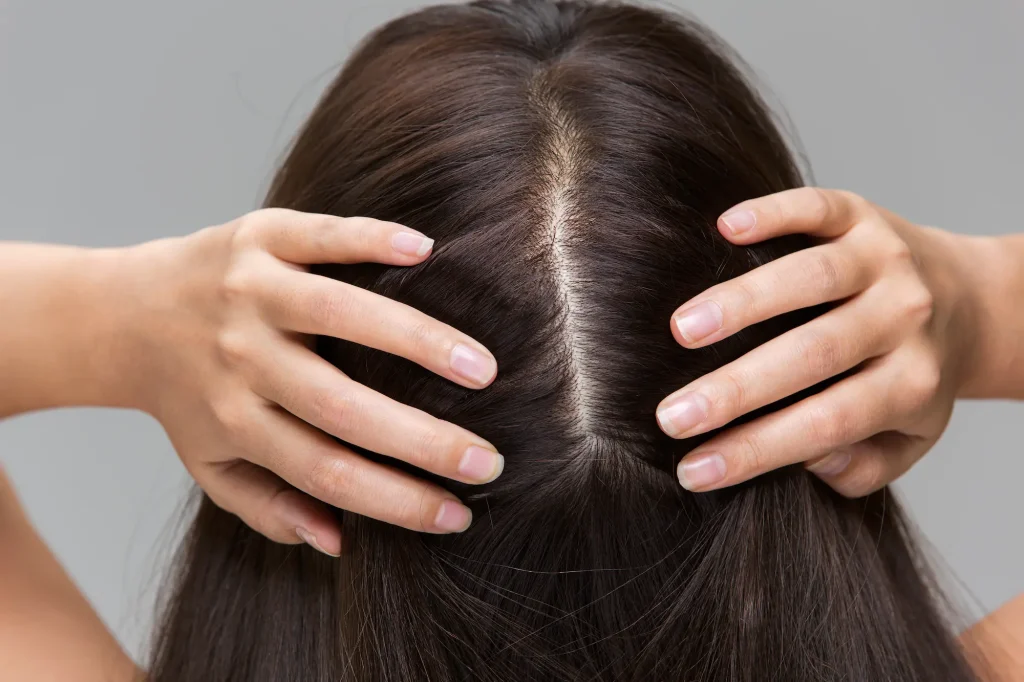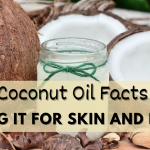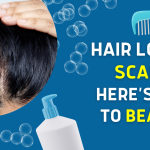
When it comes to hair care, most people zero in on shampoo, conditioner, and perhaps the occasional serum or oil. But what often gets overlooked is the very foundation of hair health – your scalp. Much like how healthy soil is crucial for a thriving plant, a healthy scalp is essential for strong, vibrant hair growth. Neglecting your scalp can lead to a whole host of problems: dandruff, itchiness, flakiness, excess oil, hair thinning, or even hair loss.
Think about it; your scalp is skin, too. And just like the rest of your skin, it needs proper care, nourishment, and the right products to stay balanced. In this detailed guide, we’ll look at why scalp care is non-negotiable, how to properly cleanse and treat your scalp, the best products to use (especially if you struggle with dandruff or sensitivity), and how to maintain a healthy scalp environment long-term.
Let’s get to the root of the issue, literally.
Why Healthy Scalp Is Crucial for Hair Growth
Your scalp has approximately 100,000 hair follicles, each playing a vital role in producing healthy strands. When your scalp is inflamed, clogged, or infected, those follicles can’t perform optimally. Conditions like seborrheic dermatitis, psoriasis, fungal infections, or just product buildup can slow down or halt growth entirely.
But even if you don’t suffer from a scalp condition, daily habits like over-washing, under-washing, using harsh products, or constant styling can tip your scalp’s natural balance. According to a study in the International Journal of Trichology, an unhealthy scalp can prematurely push hair into the “resting phase” (telogen), reducing the thickness and volume over time.
Taking the time to care for your scalp isn’t a luxury—it’s a necessity.
How to Properly Cleanse Your Scalp
Scalp cleansing isn’t just about lathering shampoo and rinsing it out. It’s about removing dead skin cells, excess oil (sebum), product buildup, and pollutants that accumulate over time. If these aren’t removed properly, they can suffocate follicles, cause irritation, and lead to poor hair health.
First, choose a gentle but effective shampoo. Sulfate-free options are generally safer, especially if you have sensitivity or chemically treated hair. If you’re using a lot of styling products or dry shampoo, consider a clarifying shampoo once a week—but don’t overdo it, as it can strip away natural oils and dry out the scalp.
The way you shampoo matters, too. Use your fingertips (not nails) to massage your scalp in small circular motions for a few minutes. This not only lifts debris but also stimulates blood circulation, delivering nutrients and oxygen to your hair roots.
Many dermatologists now recommend double cleansing for the scalp, especially if you have oily roots. The first cleanse removes surface grime, and the second allows your shampoo to actually treat your scalp.
Scalp Scrubs and Exfoliation: Yay or Nay?
Exfoliating your scalp can help slough off dead skin cells and enhance product absorption—but it’s not for everyone. If you have a flaky scalp due to build-up or oil, a gentle scrub (once a week) can help. But if your scalp is sensitive, irritated, or prone to conditions like eczema or psoriasis, physical exfoliants can do more harm than good.
Opt for chemical exfoliants like salicylic acid or glycolic acid-based scalp treatments, which are less abrasive but just as effective. Some major brands now offer scalp-specific formulations that deeply cleanse while soothing inflammation.
Always follow up with a hydrating serum or lightweight oil to maintain moisture balance.
Dealing with Dandruff and Sensitivity
Dandruff is more than just a cosmetic nuisance—it’s often a sign of an imbalanced scalp microbiome. It can be triggered by stress, cold weather, or yeast overgrowth (Malassezia). If left untreated, it can worsen into seborrheic dermatitis, which causes redness, inflammation, and scaly patches.
Using an anti-dandruff shampoo with zinc pyrithione, ketoconazole, or selenium sulfide can help reduce flaking and control microbial activity. If you prefer natural remedies, tea tree oil is known for its anti-fungal and anti-inflammatory properties—but make sure it’s properly diluted.
For scalp sensitivity, avoid shampoos with synthetic fragrances, parabens, and alcohols. Instead, look for hypoallergenic formulations with soothing ingredients like aloe vera, calendula, and chamomile.
A patch test is always a good idea when introducing a new product to avoid any unexpected reactions.
Nourishing Your Scalp From Within

Your scalp health isn’t just about what you apply topically—it’s also about internal nourishment. Nutrients like biotin, zinc, vitamin D, omega-3 fatty acids, and iron play a critical role in maintaining healthy follicles. A deficiency in any of these can manifest as hair loss, dryness, or an itchy scalp.
Hydration also matters. Your scalp is skin, and skin needs adequate water to maintain its elasticity and barrier function. Drinking enough water and including water-rich foods like cucumber, oranges, and watermelon in your diet can make a surprising difference.
If you’re experiencing chronic scalp issues, getting a blood panel done to check for deficiencies might offer answers your shampoo can’t.
Creating a Healthy Scalp Routine
Consistency is key. Just like a skincare routine, your scalp deserves regular attention. That doesn’t mean daily treatments, but rather creating a weekly ritual that includes cleansing, moisturizing, and protecting the scalp.
Start with washing your hair every 2–3 days (unless your scalp is extremely oily or you sweat heavily every day). Post-wash, consider using a leave-in tonic or scalp serum that targets your concerns—whether that’s dryness, flaking, or hair thinning.
Avoid excessive heat styling, which can dry out your scalp and damage follicles. And if you’re outdoors a lot, don’t forget your scalp needs sun protection too. Scalp sunscreens or wide-brimmed hats can help prevent UV damage that causes inflammation and weakens hair roots.
Best Scalp-Care Products Worth Trying
While there are many products out there, a few have risen to cult-favorite status due to their effectiveness:
- Kama Ayurveda Bringadi Intensive Hair Treatment: A classic Ayurvedic oil that not only nourishes the scalp but also calms inflammation and strengthens hair roots.
- The Ordinary Multi-Peptide Serum for Hair Density: Packed with peptides and caffeine, this serum is loved for stimulating dormant follicles and improving density.
- Selsun Daily Anti-Dandruff Shampoo: A gentle, selenium sulfide-based shampoo that’s effective without being too harsh on the scalp.
- Earth Rhythm Scalp Exfoliant: Infused with AHAs, this exfoliant gently detoxifies without the gritty abrasiveness of scrubs.
Remember, scalp care isn’t about how many products you use—it’s about choosing the right ones and using them consistently.
Final Thoughts: Don’t Ignore Your Scalp
Your scalp is the foundation of your hair health, and like any foundation, it needs to be strong and stable. If you’ve been dealing with hair thinning, excessive shedding, or stubborn dandruff, the problem might not be your shampoo or your hair type, it might be the condition of your scalp.
Taking care of your scalp doesn’t have to be complicated. With a little awareness and a consistent approach, you can transform your scalp environment, and as a result, enjoy stronger, shinier, and healthier hair.
Don’t wait until your scalp “acts up” to show it some love. Prevention is just as important as treatment. In a world that’s obsessed with serums and hair masks, let’s not forget where it all begins: the skin beneath our strands.






Leave a Reply